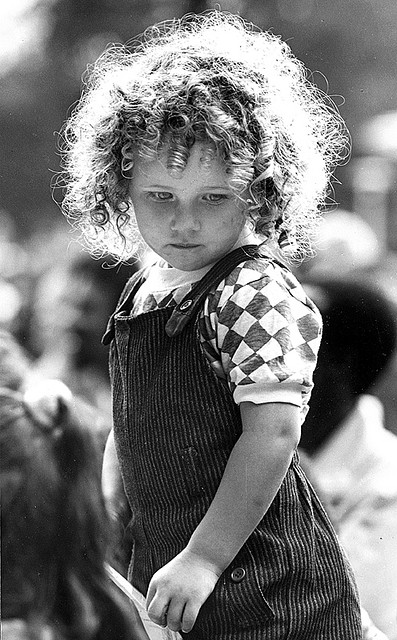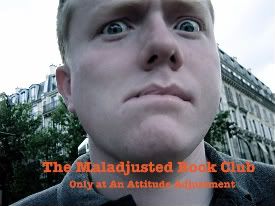Poetry File: Children
Good poetry is made to be shared. A friend passed this on to me after hearing it in her yoga class, and now, I pass it on to you.
“On Children” by Khalil Gibran (an excerpt from The Prophet)
And a woman who held a babe against her bosom said,
“Speak to us of Children”.
And he said:
Your children are not your children,
They are the sons and daughters of Life’s longing for itself.
They come through you but are not from you,
And though they are with you yet they belong not to you.
You may give them your love but not your thoughts,
For they have their own thoughts.
You may house their bodies but not their souls,
For their souls dwell in the house of tomorrow,
which you cannot visit, not even in your dreams.
You may strive to be like them, but seek not to make them like you.
For life goes not backward nor tarries with yesterday.
You are the bows from which your children
as living arrows are sent forth.
The archer sees the mark upon the path of the infinite, and
He bends you with His might that His arrows may go swift and far
Let your bending in the archer’s hand be for gladness;
For even as He loves the arrow that flies,
So he loves also the bow that is stable.
Brilliant, huh?
What do you think? Do you agree with these ideas of parenting? I like the line that we should strive to be like children, but not seek to make them like us. That in order to evolve as a culture, a community, a world, children must go their own way.
I suspect one of the hardest and yet exciting things about being a parent is the realization that a child is made to charter her own course. If only the child’s breaking away didn’t feel so sharp….
Poem link here.
Image: “(Child) Girl” by rcvnl via Flickr using a Creative Commons license.








Excellent poem. Yes, while I agree with the ideas here and wish the same for how I parent my children, it sometimes is harder than it seems. You’re very right though: “If only the child’s breaking away didn’t feel so sharp.” Amen to that.
I feel so special when you quote me.
I’m so used to Facebook that I just tried to Like this.
Ha ha, Leslie, I did the exact same thing! 🙂 Like!
Beautiful poem. I agree in theory, but in practice it is much harder to be that easy-going and free. As parents, we are so invested in our children that sometimes we lose focus and/or get narrow-minded in our goals. I think good parents read something like this and see it as an attitude to strive towards, in many areas. I feel bad for the children of parents who have a very possessive “ownership” type of hold on them and insist on creating mini clones of themselves by any means necessary. That just makes me sad.
But thanks for sharing – it is lovely.
I have always liked the poem “Perhaps the World Ends Here” by Joy Harjo (another one about family, children, culture).
I feel bad for those children, too. I’m glad you liked it! (But I agree it is hard to be easygoing and free. Why? WHY?)
Beautiful poem. Someone told me, when I was pregnant with my first, that children are not ours, merely loaned to us for a time.
And I see it every day, in both of my girls. They are not mine, not moldable clay. They are themselves. My biggest hope as a parent is to allow them to grow into their best selves.
Ahhh, one of my very favorite poems by Kahlil Gibran. Of course it’s inevitable that our children will be indoctrinated into our own our culture (big and small)–because culture is interwoven into the fabric of our daily lives– and from that standpoint, it’s probably impossible to make our children “like us.” But I absolutely agree that we, as parents, should step back as much as possible, whenever possible, to let our children grow into who they were meant to be. We can encourage free-thinking, we can give our children permission to explore, we can support them when they make choices that are different than ours (within reason, of course!).
I’ve actually been thinking a lot about this type of thing recently. As I’ve evolved throughout my 30s, I’ve realized how much of who I am is because of who my mom was and yet I’m not exactly who she was, at all. Like you say in your post, it’s almost as if I’m taking parts of her, but evolving further, making choices that she didn’t in her lifetime; taking the best of her and building on that. Some of that is because she taught me to do this very thing– her mothering was very loving and very involved, but I know she consciously strove to help me be independent from her–and some of that is because she’s gone now and so there is a sense of responsibility, a weight on my shoulders to carry on her spirit, to be the mother she was…but also a freedom at the same time, a freedom to choose who I will be. And I want to give my children all this, too.
Khalil Gibran. Sorry.
Who the heck knows how to spell his names. I’ve seen it both ways, everywhere.
And you already know this poem? That’s why you’re so great. Thanks for your thoughtful comments.
You know what’s funny? I actually used a line from this poem in the essay “A Child of My Own”- the one that was posted on Scary Mommy and led you over to my blog . Fun, right?
And actually, come to think of it, I think I know the poem from… my mom. Tells you what kind of mom she was. 🙂
Excellent poem. I like the second stanza about your children not really being your own. The words in this particular part of the poem reminds me of the Hindu philosophy of detachment. That we should love all the same, with no particular attachment. It’s a principle that is very difficult to achieve.
Love the same? I can understand the concept from a spiritual perspective, but it is difficult, to say the least. Thanks for sharing, though. I’m always interested in learning spiritual philosophies.
I wish I had had this when my daughter was born. She’s fine now, but I made it so much harder for her than it should have been just as my parents made it so much harder for me than it had to have been…
I will give this to her when she has babies… thank you
I didn’t wait.. I just emailed it to her with a note of thanks for her bravery in choosing me as her mother. thank you again
How wonderful, Tracy. I’m glad you didn’t wait. And I’m glad you liked the poem so much!
That is a beautiful poem.
I love this. My first introduction was long before I had children – I was maybe 12, and my grandfather asked me to read it (and lots more) aloud to him. Recognizing that your children are not ‘yours’ so much as they are themselves, their own, is as important as it is difficult, I think. The part about stability is comforting in its reminder that as the kids get older, we parents don’t just stand around and observe; we still get the challenge of keeping a steady hand.
The Prophet is one of my favorite works. I read it many, many years ago and go back to it time and time again. I think these sentiments are beautiful.
As the eldest daughter of a very strict couple (a military man and a primary school teacher during the Spanish dictatorship) I had a really strict childhood. So, when I had my own kids, I did exactly the opposite.
Fortunately, I met their P.E. teacher exactly on time and he read me the poem …
I still have to fight to get the balance, and I read the poem when I see I am not in the middle or near it: hard and difficult!!!
Ps: I am so surprised .You are so creative.I haven´t read your blog since 31st and in the meantime you have written so much!!. Congrats
I heard this poem for the first time before I became a parent and the truth it imparts reverberated throughout me. I wrote the first two stanzas over and over again in my writer’s notebook. Thank you for bringing it back into my consciousness. Now that I’m a parent it is even more meaningful.
“They come through you but are not from you.”
That’s the line that gets me. It seems so unintuitive, so false, but it’s so very true. So true. Wow, what a read.
I am currently wiping away tears. All so true. And so hard to swallow sometimes.
Oh, I love this poem. I read it years ago before I had children. Mine were fairly overbrearing parents. My mom, especialy, was over the top religious. It meant something to me to hear a, sort of, bill of rights, for children.
Great post, as always, Jana! 🙂
I think that us teachers should xerox a stack of copies of this poem and distribute it to all the intense, controlling type parents on conference night.